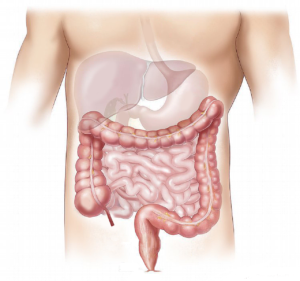Living in the Exhale

Breath is one of the 3 pillars of Block Therapy. There is more information coming out all the time about the importance of this automatic action in regard to how it affects our health. Although automatic, how we choose to breathe makes a significant difference to the quality of every aspect of your life.
The diaphragm is unique in that it is the only muscle that is under both our conscious, and unconscious control. What this means is whether we are paying attention to it or not, the diaphragm will be working -- we are designed to survive, and this is the muscle that is meant to pull air into the lungs and move waste out. The challenge lies in the fact that if we don’t exercise this muscle, like any other, it becomes weak.
A weak diaphragm has many implications. Firstly, it is the foundation of the ribcage. When it is strong, it supports the weight of the upper body and works to give the organs a continual massage, providing the energy they need to be most efficient at their jobs. If weak, the weight of the upper body comes crashing down on the contents in the core, squishing and displacing the organs. The lack of movement of this muscle cools the area which slows the flow.
Think of the stomach organ. Situated on the left side, part of what helps this organ break down food for absorption of nutrients is the mechanical act of the breath. Movement creates heat and heat creates energy. Without this action, the stomach can’t perform its functions with ease, resulting in digestive issues.
The liver, situated on the right side, has many functions; one of them is to clean the blood. The fats in our system move through this filter and if cold, the fats solidify, blocking the liver’s ability to do its job effectively. Fatty liver disease is on the rise, and I see the unconscious breath as one of the main reasons for this.
The pancreas sits underneath the diaphragm in the center of the core. One of its functions is to control blood sugar. If cold and squished, it struggles to keep up with its job and can result in metabolic disorders such as diabetes. This too is on the rise and I see the weakness of the diaphragm being a major culprit.

I could go on and discuss every system and function of the body and how the conscious breath only enhances its ability to work with ease, and conversely, how the weak breath impacts every level of our health. But what I want to share is a way to consider the breath so to bring awareness to this muscle in order to create healthy cells that are properly fed and clean with every breath.
There is a range that you have to your breath. At rest, we don’t move this muscle in its complete range as the cells aren’t using extra energy to do work. However, when you are moving and working the body, the breath becomes greater in its range so to pull in more oxygen to feed the hungry and active cells. The goal I want to share with you is that at rest, you live in the exhale. What does this mean?
In Block Therapy we always mention to exhale fully. Take a moment, exhale all the air out and then add a little more action as you squeeze the belly small. From here, take in a full and complete inhalation, making the belly as big as possible. Take a few breaths in this full range so to get a sense of the end ranges of both actions. Most people are comfortable with taking a full inbreath, but most don’t connect to the full outbreath. This leaves waste behind, allowing it to build up in the cells and creates a toxic environment over time.
In Block Therapy we always mention to exhale fully. Take a moment, exhale all the air out and then add a little more action as you squeeze the belly small. From here, take in a full and complete inhalation, making the belly as big as possible. Take a few breaths in this full range so to get a sense of the end ranges of both actions. Most people are comfortable with taking a full inbreath, but most don’t connect to the full outbreath. This leaves waste behind, allowing it to build up in the cells and creates a toxic environment over time.
Deanna Hansen - Founder
Now, take a full inhalation and only breathe out half of the capacity that you can; meaning, you are not exhaling fully. Take 10 breaths and notice how you feel. Next, reverse this action. Exhale fully, then only inhale to half capacity. Take 10 slow breaths and notice how you feel. At first, you may become anxious as your body is adapting to the change in focus but pay attention to how your system adapts and notice if you feel calmer.
I choose to always live in the exhale. Whenever I am breathing in a relaxed way, I am always working from that space within. If practiced to become a habit, I believe this is one of the best ways to keep your body healthy lifelong. Remember the study I frequently mention that the majority of weight loss comes through proper exhalation. Not only does this help to manage a healthy size and shape, but it keeps the cells as clean as possible, benefiting every aspect of your life.
So, live in the exhale and reap all the amazing benefits of this simple and easy to assimilate practice!
Breathe & Believe
Want to learn more about the importance of proper diaphragmatic breathing?
Check out the blog Back to the Basics: The Importance of Turning up the Heat and Optimal Oxygenation
Follow us on our social channels below to learn more about Block Therapy and see some amazing transformations!








Responses